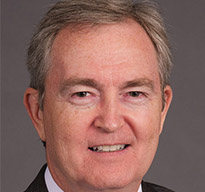Water Treating for Shale Operations
Disciplines: Projects, Facilities, and Construction
Course Description
This course provides both an overview of water management in conventional and unconventional operations and an in-depth look at critical issues related to sourcing (acquiring), reusing, recycling, and disposing of water in shale operations with emphasis on the Permian basin. The course starts with a background of shale operations and the different plays around North America. Options being used for transport, storage, reuse, and disposal are described and explained in terms of climate, type of shale, type of fracturing fluids being used, and the regulatory framework.
The unique features of hydraulic fracturing fluids and shale produced water are given and compared to those of conventional oil and gas fluids. Water chemistry is discussed which forms the basis for reuse/recycle or disposal. The use of biocides, flocculating agents, and scale inhibitors are discussed for water treatment. Fundamental aspects are emphasized in order to give the attendees a firm basis for project planning, design, implementation and trouble-shooting. Throughout the course, field experiences, practical issues, and field performance of equipment is presented.
Topics:
- Produced water management overview in conventional and shale operations - differences and similarities
- Unconventional oil and gas – Background
- Chemistry and fluid characterization for unconventional oil and gas
- Chemical treatment with emphasis on biocides, flocculating agents, and scale inhibitors
- Produced water treatment technologies
- Why certain technologies work well and others do not
- Which technologies are suitable for which kind of fluid
- Costs to use various technologies at well sites, well pads and clusters, and in centralized facilities
- Lessons learned and best practices are presented for essentially all phases of the water management life cycle
Learning Level
Intermediate
Course Length
1 or 2 Days
Why Attend
Water treating is becoming increasingly important for maintaining the license to operate, as a component of DBOO project delivery, and for developing IOR/EOR projects.
Who Attends
This course is intended for process, facilities, and chemical engineers involved in either design or troubleshooting water-treating systems.
Special Requirements
Attendees should have a basic understanding of upstream oil and gas facilities.
CEUs
0.8 or 1.6 CEUs (Continuing Education Units) are awarded for this 1- or 2-day course.
Cancellation Policy
All cancellations must be received no later than 14 days prior to the course start date. Cancellations made after the 14-day window will not be refunded. Refunds will not be given due to no show situations.
Training sessions attached to SPE conferences and workshops follow the cancellation policies stated on the event information page. Please check that page for specific cancellation information.
SPE reserves the right to cancel or re-schedule courses at will. Notification of changes will be made as quickly as possible; please keep this in mind when arranging travel, as SPE is not responsible for any fees charged for cancelling or changing travel arrangements.
We reserve the right to substitute course instructors as necessary.
Instructors

Dr. John M. Walsh works for Worley Advisian, having formerly worked at Shell for 21 years, CETCO Energy Services, and Westvaco Paper Company in various areas of water treatment. He is the author of Produced Water volumes 1 and 2, and over 60 papers and presentations.
Walsh has 35 years of experience across a broad range of onshore/offshore, conventional, and unconventional water management applications. He has designed water-treating systems for applications in 18 countries around the world. He has led water treatment technology development, field trials, pilot evaluations, and troubleshooting programs.
Walsh was appointed the Shell Global Subject Matter Expert for Water Treatment. He is versed in reservoir engineering and helped optimize water flood specifications and treatment, mediating between reservoir and facility engineering interests. He is well-connected in the industry having served on the board of directors for SPE, as president and managing director of the Produced Water Society, associate editor for SPE, and as organizing chairman for a dozen workshops and conferences on produced water across the globe.
Having earned a Ph.D. in chemical engineering, together with extensive experience in operating units, Walsh brings a unique combination of fundamental knowledge with firsthand practical experience.
Kris Bansal, PH.D., is a consultant with expertise in developing optimum engineering solutions requiring system integration and interface with multiple disciplines from reservoir to the topsides in upstream operations. He recently retired as an Engineering Fellow from ConocoPhillips after 30 years of service in E&P. At ConocoPhillips, he was the global subject matter expert in the area of upstream water management. Before joining ConocoPhillips, Kris spent 6 years in Saudi Aramco in operations engineering. He led a team of engineers for process studies and corrosion control programs in upstream operations in the Ghawar field – one of the largest in the world.
At ConocoPhillips, Kris was heavily involved in nearly all areas of water treating including conceptual and detailed engineering design of new projects, commissioning and start-up, waterflooding, steam flood, unconventional shale gas operations, and deepwater. He successfully developed processes for management of non-produced fluids including drilling wastes and flowbacks for optimized facility operation – a total system approach. He provided technical and problem solving expertise in ConocoPhillips worldwide operations to develop innovative, cost-effective and environmentally sound solutions to process problems. He taught waterflood school and presented problem solving seminars for technology transfer to operations and engineering in ConocoPhillips.
Kris has presented papers on the subject of produced water management at various conferences and workshops, and has been the keynote speaker at SPE technical forums Kris has a MS and Ph.D. in Physical Chemistry and MS in Chemical engineering. With extensive experience in operations, Kris provides a unique combination of fundamental knowledge with first-hand practical experience to organizations.
Other courses by these instructors
Dr. John M. Walsh
This course provides a fundamental understanding of the science and practical applications of water treating. It presents the fundamental mechanisms behind various water treating equipment and processes, and gives practical e...
(Read More)Disciplines: Projects, Facilities, and Construction | Reservoir
